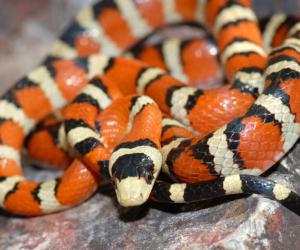The 6 Most Common Health Problems in Malamutes
Originating from the Arctic region of Alaska, the Alaskan Malamute is one of the largest domestic dog breeds. Bred as sled dogs, Malamutes are a working dog breed with high energy and intelligence. Their thick, beautiful coat protects a strong, muscular build from harsh conditions. Today, they make excellent pets for families looking to add a furry companion to the mix. Alaskan Malamutes bond quickly with their people and are also friendly to strangers. While they don’t make the best guard dogs, they are great with children and are the perfect addition to a family with an active lifestyle. If you plan to bring this home, be aware of the common health problems in Malamutes.
#1: Inherited Polyneuropathy

The Alaskan Malamute is often compared to the
Siberian
husky. While there are many similarities, Malamutes are much larger than huskies.
©Alina Ziabrieva/Shutterstock.com
Inherited polyneuropathy is a neuromuscular disease commonly found in Alaskan Malamutes. This disorder causes muscle weakness in limbs, especially the hind legs. Dogs may experience tingling or numbness that can lead to exercise intolerance. This can slowly worsen and lead to more physical challenges as Malamutes age.
This disease particularly targets the peripheral nerves — they connect the spinal cord and brain to muscles that signal pain or touch. In Malamutes, this is an inherited condition.
#2: Hip Dysplasia
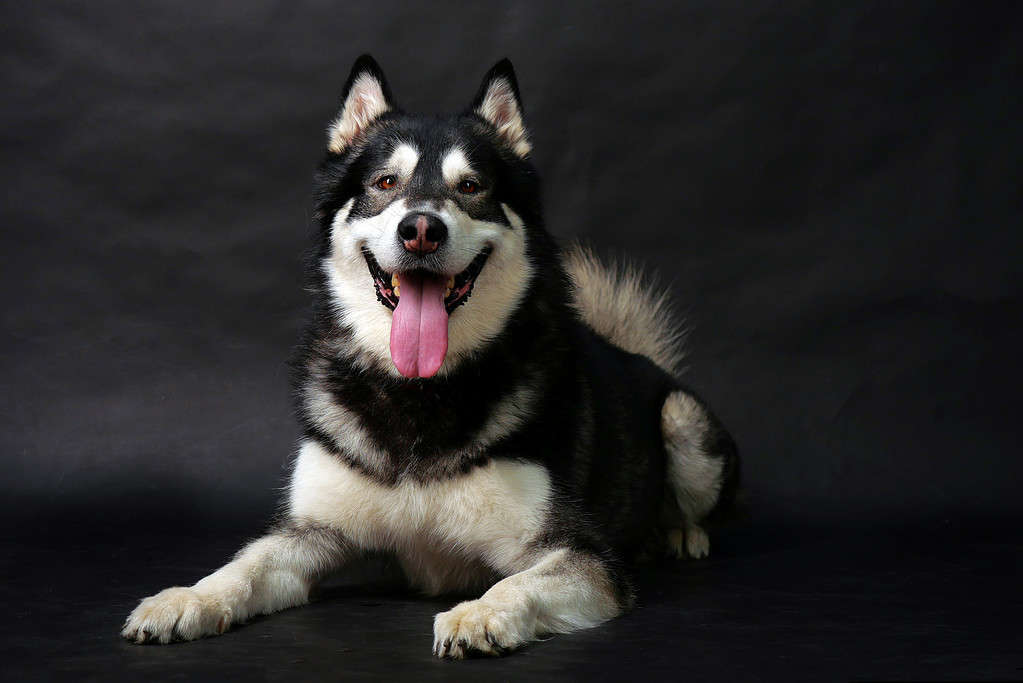
Markings on the face are one of the most striking features in Alaskan Malamutes. They are highly distinguishable and resemble a mask framing the eyes.
©asadykov/iStock via Getty Images
Hip dysplasia is a common issue in many large dog breeds. This unfortunate condition develops when the hips don’t form appropriately. While it’s not an issue at a young age, hip dysplasia can lead to arthritis as Malamutes age.
Signs of hip dysplasia include lameness in the hind legs, the struggle to rise from the floor, and challenges when using steps or jumping on furniture. A few ways to prevent hip dysplasia include joint supplements, keeping your dog at a healthy weight, and safe and consistent exercise.
#3: Chondrodysplasia
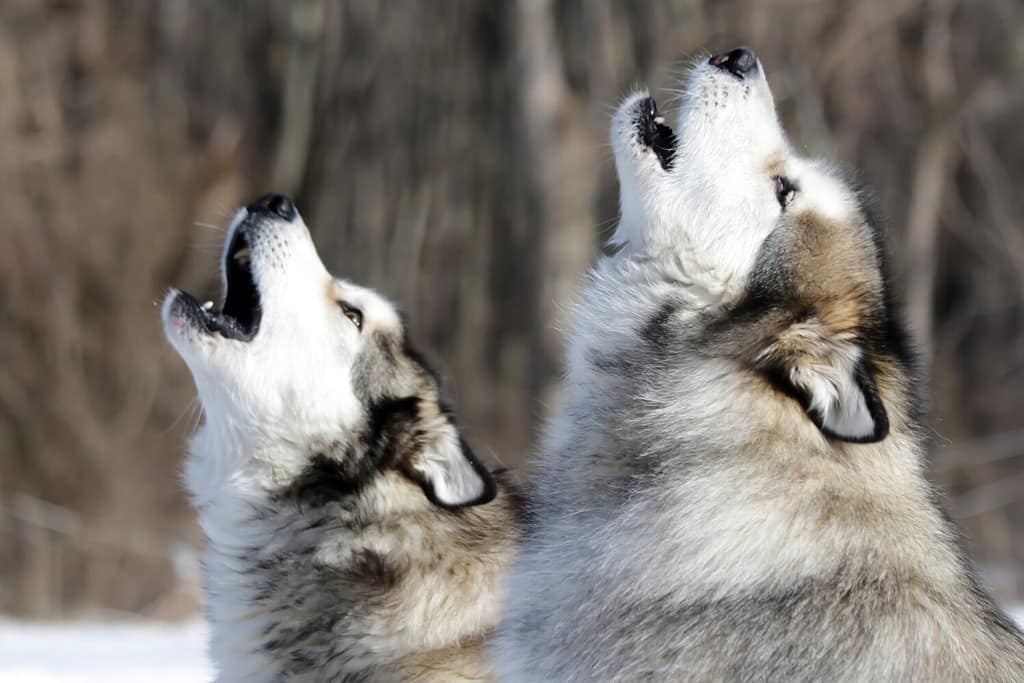
While their size and regal appearance may seem intimidating, Alaskan Malamutes make great family dogs and are highly affectionate and loveable.
©Kate Lussier/Shutterstock.com
When Alaskan Malamute puppies are born with deformities, chondrodysplasia can develop as a result. This is a genetic disorder that causes atypical shape and length in the dog’s limbs. Adult Malamutes may carry the recessive gene and pass it down to litters. Skeletal abnormalities include short front limbs, bowing of the legs, and deformities of the pelvis.
Malamutes with chondrodysplasia typically have a normal life expectancy and live long happy lives.
#4: Hypothyroidism
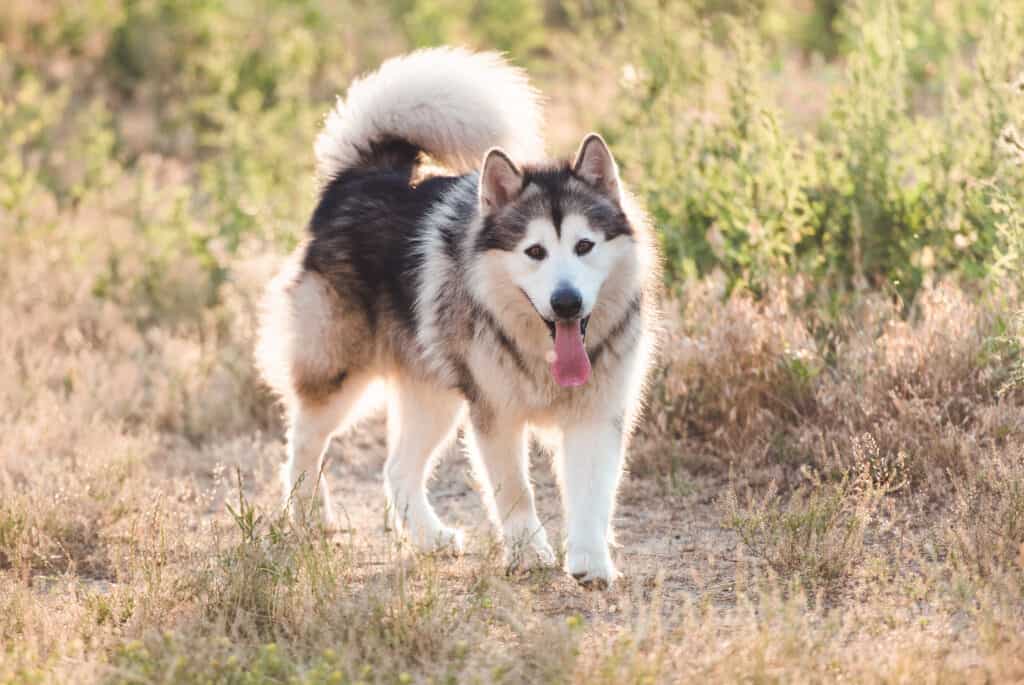
An Alaskan Malamute can become easily bored, so they are known as escape artists and obsessive diggers.
©iStock.com/VYCHEGZHANINA
Hypothyroidism is an extremely common issue with Alaskan Malamutes. Their bodies often struggle to produce enough of the thyroid hormone.
Common signs to be aware of include skin issues, weight gain, anxiety, hair loss, or other noticeable behavior changes. The good news is hypothyroidism is very treatable with medication. If you notice any signs your Malamute may be experiencing hypothyroidism, contact your veterinarian immediately.
#5: Day Blindness

While they are not as vocal as Siberian huskies, Alaskan Malamutes tend to howl, especially if left alone for long periods.
©Hanna Borysenko/Shutterstock.com
Just as the name implies, day blindness in Malamutes is a genetic condition that causes vision impairment in bright lights. Challenges with vision usually disappear at night, and your dog can generally function normally. While this disability can be frustrating for both you and your Malamute, your dog can still live a happy and healthy life with some lifestyle modifications.
Signs to look for include clumsiness, bumping into objects, and tripping or stepping in holes in the grass. Your Malamute may also appear disoriented in the sunlight and even avoid light altogether. They will also rely on their nose as opposed to their vision when fetching a ball or meeting new people. If you notice these signs, speak with a professional to devise a treatment plan.
#6: Von Willebrand Disease (vWD)
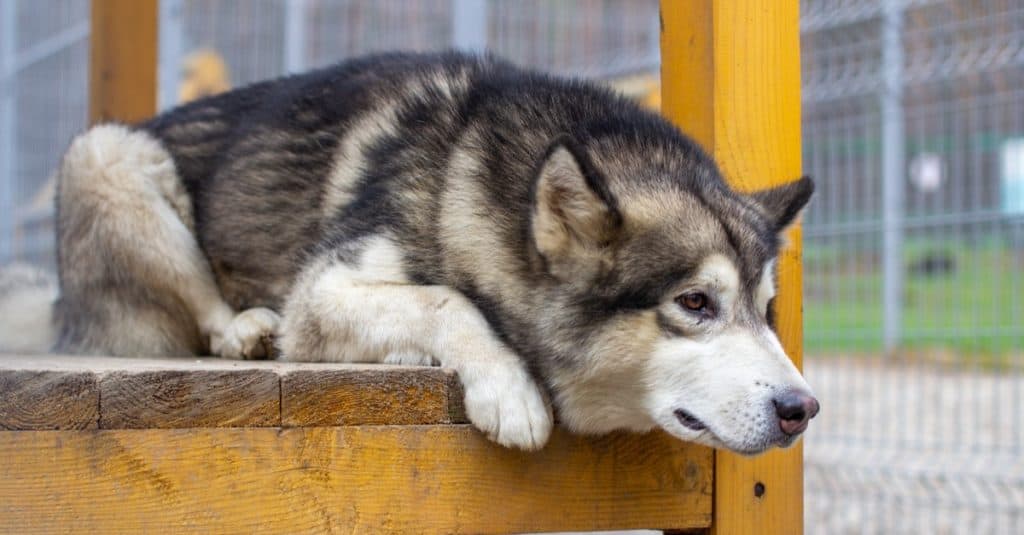
Due to a thick, double coat, Alaskan Malamutes cannot live in hot climates because they will overheat.
©iStock.com/ANATOLii SAVITSKii
Canine von Willebrand Disease (vWD) is an inherited bleeding disorder that can occur among Alaskan Malamutes. Signs of vWD can be mild or severe spontaneous bleeding. It is caused by a protein deficiency in the blood called von Willebrand factor (vWF). Severe cases exhibit signs of spontaneous bleeding from the nose, mouth, or reproductive parts. If you notice this in your Malamute, contact your veterinarian immediately — emergencies may require blood transfusions or plasma.
Summary of the Six Most Common Health Problems in Malamutes
| Number | Common Health Problems in Malamutes |
|---|---|
| 1 | Inherited Polyneuropathy |
| 2 | Hip Dysplasia |
| 3 | Chondrodysplasia |
| 4 | Hypothyroidism |
| 5 | Day Blindness |
| 6 | Von Willebrand Disease (VWD) |
Up Next:
- These 11 Dog Breeds Prone to Hip Dysplasia
- Alaskan Malamute Lifespan: Average Life Expectancy and More!
- The 15 Best Dog Breeds That Can Handle and Thrive in Cold Weather
The photo featured at the top of this post is © Aneta Jungerova/Shutterstock.com
